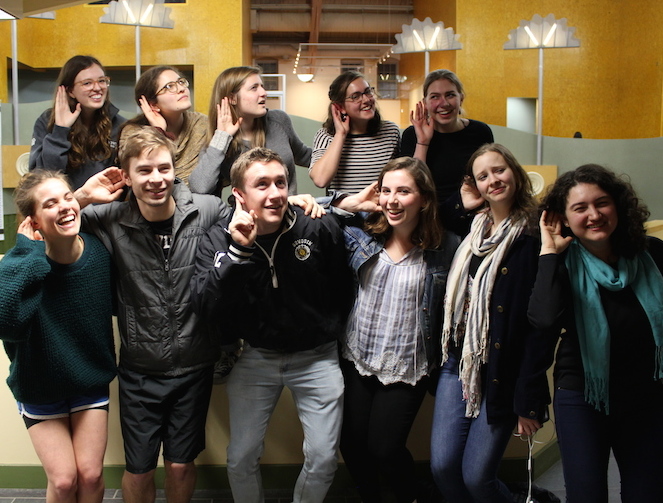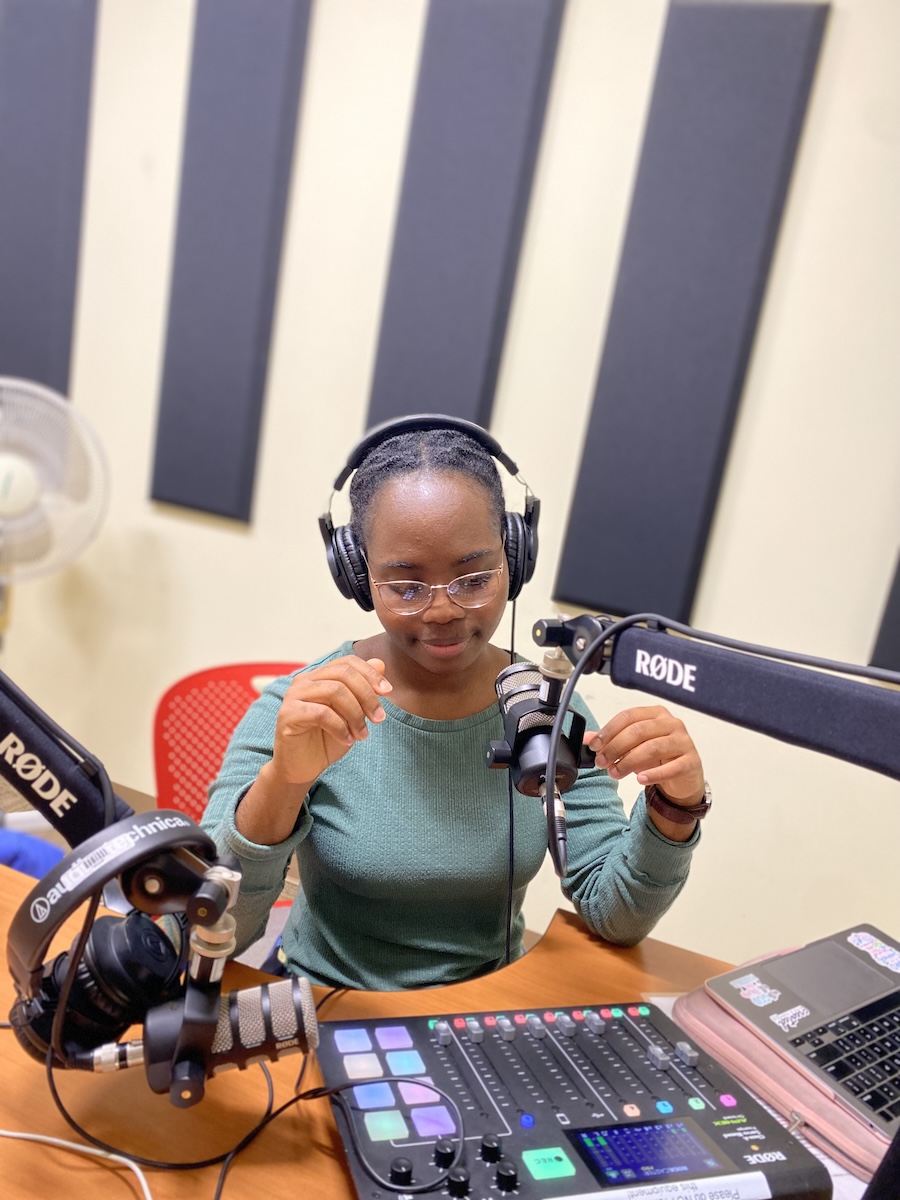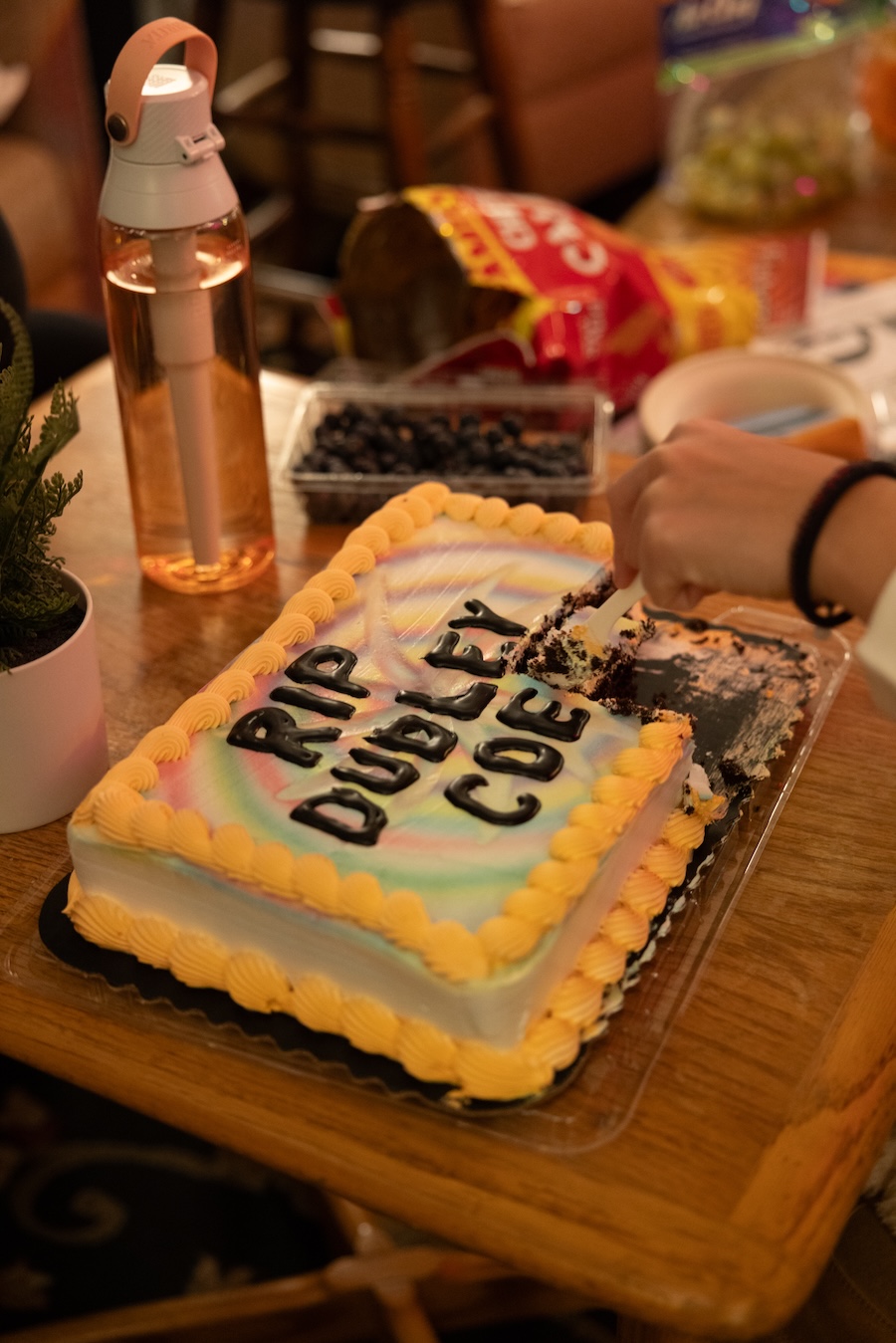Uncommon Stories in New Student Podcast, 'The Commons'
By Rebecca Goldfine“Here’s the naked truth,” Jodi Kraushar ’17 says, as she introduces the first episode of the new student podcast The Commons. “Everyone has a complicated relationship with their body. Do you stare at yourself in the mirror before you hop into the shower…or do you take your towel off in the tub, having seen your body once when you were 15 and swearing never to go through that horror again?”
So begins “The Naked Truth.” In the 38-minute episode, three Bowdoin students—Kraushar, Talia Cowen ’16 and Büşra Eriz ’17—explore the power of nakedness in platonic situations. The original score is by Sam Kyzivat ’18.
Episode two, which will come out in the next few days, is related to the first episode’s theme but also departs from it. It explores the power of clothes and fashion, and what our sartorial choices communicate to others. The producers include footage of a campus conversation held recently about the trend of wearing expensive goose-down jackets, and they also delve into Bowdoin’s history to find out what students in the past were expected to wear.

A dozen students edit, write and produce The Commons. They launched the podcast to tell stories that are about Bowdoin but also relevant to a larger audience, explains Eriz. “The podcast is inspired by things going on at Bowdoin, but the themes are big enough that someone not connected to Bowdoin can listen and enjoy it and learn from it,” she said.
Carly Berlin ’18, who is part of The Commons team, said it’s easy to think you know everyone on campus. But there’s always more to discover. “I hope that The Commons can showcase the stories that we don’t already know, and remind us that there’s always more to learn about the people that surround us,” she explained.
Most of the students behind The Commons say they’re fans of radio and podcasts, naming shows like Serial, Modern Love, and RadioLab as inspiration. “I believe strongly in the ability of audio to communicate feelings and emotions in an unparalleled way,” Kraushar said.
Cowen said she wants to pursue a career in radio journalism, and has appreciated the chance to gain audio editing skills at Bowdoin. The Commons crew use Bowdoin’s new Media Commons computers to produce their shows. “I’ve spent countless hours listening to podcasts like RadioLab, Planet Money, Serial, and This American Life, but it’s awesome to now be on the creative end of that process,” Cowen said.
“The Naked Truth” podcast is split into three sections. Interspersed throughout the show are quick interviews with students as they walk across the Quad. These students share with reporters Liam Finnerty ’17 and Starling Irving ’17 some quirky experiences they’ve had with nudity. The second part contains tape taken during a feminist photo shoot at Bowdoin in which female students pose with friends and props but without clothes to show the diversity of body shapes and sizes. The third section of the interview includes an interview with two students who work as nude models for Bowdoin’s art classes.
While this show could have easily descended into a ceaseless fit of giggles (and there is a bit of this), the students recorded in the podcast are mostly thoughtful, reflective and often funny, because it’s hard not to be. “My friends from home are very liberal with their nudity, so whenever I’m home I’m definitely going to see my friend Rachel naked five or 10 times,” one student says. “She also sweats a lot, so she has to feel free.”
“I kind of look like a wrinkled ogre,” says one of the nude models, describing the times when she checks out the art students’ depictions of her. On a more serious note, her modeling friend says, “I am into reclaiming my self naked without being sexualized. The sexualization of the nude body, especially of women, makes it into a spectacle, and the best thing you can do is naturalize that.”
Many of the students interviewed for the show reveal insights they’ve come to about their relationship with their body and others’ bodies. Kraushar’s introduction frames many of the stories that follow. “…Whether your body is your sanctuary or your hell, whether you preach body positivity or navigate behind body shame, nakedness can be an incredibly powerful experience,” she says. “To disrobe and reveal you to yourself or others creates an unparalleled experience of vulnerability, of openness….We examine how that simple act of removing one’s clothes can transform into a much more complex step of stripping down barriers.”



